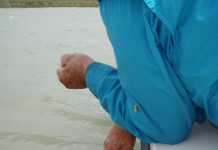Getting a concealed handgun license will be easier come September, and after passing a course, holders can store a variety of calibers safely in a vehicle at a college or university.
Gov. Rick Perry has signed numerous legislation during this session in Austin aimed at concealed carry in Texas, while vetoing the so-called Protection of Texas Children Act, which would have created a program at public and charter schools that allows for employees with a valid CHL license to have their weapons at hand or locked away nearby. The legislation would have provided funding for training to respond with deadly force if needed in the case of an active shooter, but Perry said the accompanying cost of $10 million was too steep and also didn’t address important safety issues.
Perry did sign House Bill 1009, which establishes a school marshal program in which those who serve must be certified as a law enforcement officer. The legislation allows districts and charter schools to appoint one marshal for every 400 students. Marshals would be allowed to carry and possess handguns, but only in accordance with district policies. The bill also would set up a training program open to employees who have a concealed carry license and would actually generate revenue for the state through the certification process.
Perry also signed Senate Bill 1857, which creates a school safety certification for licensed CHL instructors to train teachers, administrators and staff who also are licensed concealed carry holders in defensive tactics inside school facilities. The certification requirements would include 15 to 20 hours of training, including on campus if approved by a school district or charter school.
SB 864, which was signed in May, cuts the minimum requirement of CHL classroom instruction from 10 hours to four and trims the classroom instruction maximum from 15 hours to six. The legislation also gives the Department of Public Safety the authority to oversee allowing online classroom courses for CHL holders seeking to renew their licenses. HB 48, which also will take effect Sept. 1, offers more flexibility for applications, providing an online avenue in which to renew a CHL license as needed rather than forcing those who previously passed to go through another classroom setting.
Under previous frameworks, the type of gun used to qualify for a CHL license was an important choice. If you used a semi-automatic firearm to pass the live-fire portion of the course, you legally were able to carry either a semi-automatic weapon or a revolver. However, if you qualified using a revolver, that’s the only type of weapon you legally could carry concealed. HB 3142 alters those provisions, allowing those who pass the course with either a semi-auto or revolver to carry any legal handgun of their choice.
SB 1907 circumvents the policies of state colleges and universities that prohibit a licensed CHL holder from storing a handgun in a locked vehicle on campus. The legislation goes a step further, prohibiting institutions from enforcing any provision that bars licensed CHL holders, even non-students, from storing a handgun in their vehicle on campus.
Another piece of legislation, SB 299, will alter penalties for unlawful carrying of a handgun by a licensed holder. The bill would make the offense, which is punishable as a Class A misdemeanor, enforceable only if a person with a CHL license “intentionally” fails to conceal a handgun. The bill also spells out the defense of the action as being legal if the person who displayed the handgun did so in an incident that would have justified the use of force.
A pair of bills aimed at the application process also were signed into law. HB 698 tasks DPS with devising a new system for individuals who live in a county with a population of 46,000 or less and don’t live within 25 miles of a facility that can process digital fingerprints. HB 1349, which will take effect Jan. 1, allows CHL applicants to withhold providing their Social Security information to DPS, while barring the department from requesting that data.
One piece of legislation that would have caused a big change for one CHL loophole didn’t make it out of committee. SB 481 would have altered the reciprocity agreements that Texas has with 30 other states in regards to concealed carry courses, not allowing Texas residents to pass an out-of-state course that then is honored here. The current loophole allows Texas residents to apply and receive a nonresident CHL from another partner state, typically without firing a weapon to pass. Individuals must still go through the fingerprinting process and pass a background check, but it bypasses most other requirements that come with in-state courses.























Thanks for sharing this handguns law blog , you have share best information in this blog .Great post ..